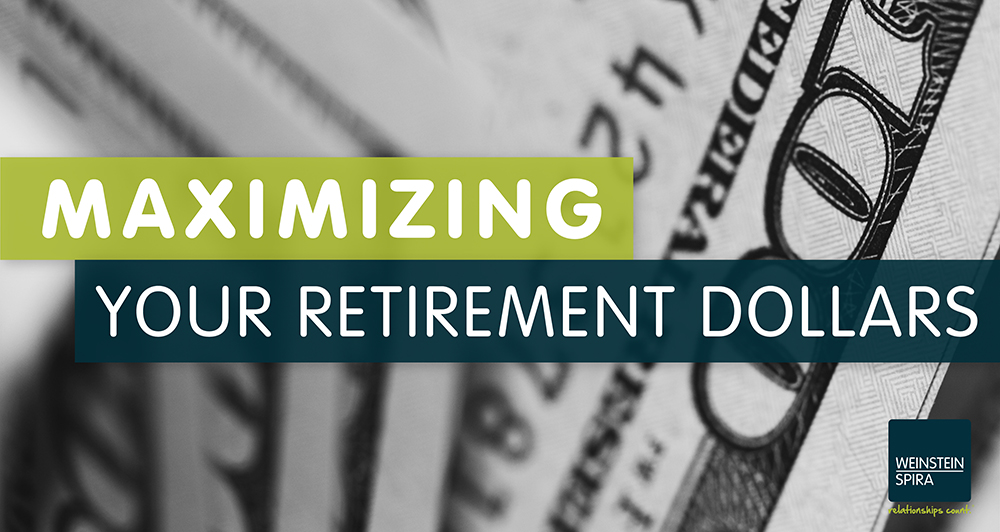You may be mid-career and saving for retirement or getting ready to jump into a retired lifestyle. Whatever stage you’re in, any tax consultant or financial advisor will tell you, “the best time to plan for that eventuality is now.” This is especially important in the current U.S. tax transition period, as we continue to learn more about the newly legislated changes and how they will impact tax liabilities for retirees. So, even if you’ve already got your ducks in a row and are on track with your retirement goals, reassessing and reanalyzing your numbers is a good idea to ensure proper management of your nest egg in any economic environment.
Be Aware
In general, one can expect their income, expenses and taxes to look quite different upon retiring, thus, requiring a new set of considerations, and perhaps lifestyle adjustments. Below are some areas to be aware of in order to maximize your retirement dollars and avoid taxes that can potentially diminish your hard-earned savings and other assets.
-
Retirement Budget
It is wise to have an idea of your retirement budget, as well as your assets and income sources before it is actually time to retire. Keep in mind that several things will inevitably change, such as income, allowable deductions, possible increase in medical and other expenses, etc. This will differ for each person, so there is no one-size-fits-all plan. There is one rule of thumb, however, and that is to carefully choose which source of cash to access to fund retirement. Have an idea of the money sources you have and what the tax impact would be depending on which bucket or source you choose.
-
Social Security and Other Income
Depending on your taxable income during retirement, Social Security benefits may, in fact, be taxed. While taking on an extra job may give you some added cash, the additional cashflow could be reduced by being subject to taxation. Check the allowable income limit based on your gross adjusted income (GAI) to understand this delicate balance. Of course, more money is always a good thing so you may opt to keep working and simply pay the tax owed after withholdings are taken out.
-
Medical Deductions
Because medical deductions could be limited in certain retirement scenarios, you may need to grab extra cash from your retirement account. For example, if you go to the doctor regularly and have $10,000 of medical costs, along with a modified adjusted gross income (AGI) of $50,000, a portion of your medical deductions will not be deductible if you itemize your personal deductions. (The disallowed amount will be 10% of your AGI, or in this scenario, the first $5,000.)
-
Retirement Account Distributions
By law, individuals must start taking mandatory retirement account distributions once they turn 70-1/2 years old and these distributions are subject to tax. There are currently ways to reduce such taxes, for example, by donating the required distribution amount to a favorite charitable organization (unless, of course, you need the cash to live on). One could also utilize their required minimum distribution (RMD) to cover their estimated income tax payments for the year. A taxpayer can draw their RMD in December and request that the withholding on their RMD be sufficient enough to cover their estimated tax payments for the year. The IRS will apply the withholding equally across the four quarters, even though it was not remitted until December. This will allow the taxpayer to defer the outgoing cashflow related to the estimated payments for most of the year.
-
Home Costs vs. Sale of Home
Many retirees have enjoyed the same home over the years, but in retirement may find it a hardship to keep up with the property taxes, repairs, etc. When deciding to sell the house or remain in it during retirement, consider the amount (and source) of cash needed and determine if that is still affordable. Downsizing and selling the house could have tax implications; particularly if the home has significantly appreciated in value, which may affect your decision, lest you get hit with an unexpected big tax bite.
-
Inheritance
Estate tax is another area that is uncertain. If you have or expect to have a sizable estate, you could be looking at a 40% tax on your assets upon your death. The tax is assessed on an estate whose value is in excess of the exclusion amount. For 2018, the basic exclusion amount is $11,180,000. Estate tax planning in advance for money you may inherit or may leave to the next generation is an important part of planning for retirement.
Be Prepared
Preparation is key. Proper planning can help reduce income taxes in your retirement years. We all need to be prepared for change more than ever. Unfortunately, retirees may get hit harder, like ending up in a higher tax bracket or facing unexpected estate taxes. Consulting with a professional CPA or financial advisor before retiring will help structure your assets and income to go a longer way in retirement years to come.



